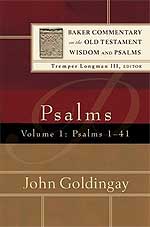Well, it’s April Fool’s Day (and appropriately my birthday) and I thought rather than trying to fool everyone with a clever post, I would do a post on the different types of fools in the Hebrew Bible, and more specifically in the book of Proverbs.
The first fool we meet in the book of Proverbs is presented as the antithesis of the person who is seeking wisdom:
The fear of Yahweh is the beginning of knowledge;
fools/dullards (אוילים) despise wisdom and instruction (Prov. 1:7).
We meet the other three fools a bit later on the lips of Woman Wisdom (חכמות), when she cries out in the streets to the fools and admonishes them to heed her advice:
How long, O simple ones (פתים), will you love being simple?
How long will scoffers (לצון) delight in their scoffing
and fools (כסילים) hate knowledge? (Prov. 1:22)
These four types of fools have the wrong attitudes prerequisite for gaining wisdom. As fools, however, they are not all equal. There is still hope for the simple one, while the dullards, fools, and the scoffers are progressively more set in their ways.
The Simple (petayim; פתים).
The Hebrew word petayim (פתים) is found 17 times in the Bible, 13 of which in the book of Proverbs. The petayim are simple and naive; accordingly most English translations render petayim with “the simple” (KJV, NIV, NRSV, NJPS, etc.). They are untutored (1:4); lacking both sense (7:7; 8:5) and wisdom (9:6). They are self-satisfied (1:22); uncommitted (7:21); and believe everything (14:15). A bit dense too in that they do not avoid danger (22:3; 27:12), if they even knew where they were going (1:32). But they do have the potential to learn (8:5; 19:25; 21:11), and are the object of wooing by both Woman Wisdom (9:6) and Woman folly (9:4, 16). Their basic need is shrewdness, as they are weak-willed and easily seduced, but there remains some hope for them.

Fools/Dullards (kisîlîm; כסילים).
Kisîlîm (כסילים) is the dominant word in the Hebrew Bible for fool. It occurs some 70 time in the Old Testament and a whopping 49 time in the book of Proverbs. While it is typically translated in English by “fool” (KJV, NRSV, NIV, etc.), the NJPS renders it consistently as “dullard” — which may not be a bad practice so as to differentiate them from the other type of fool, the ‘evîlîm. Dullards hate knowledge (1:22); are complacent (1:32); and reckless (14:16; 17:10; 29:11). They lack understanding and sense (8:5); are deluded (14:8); take pleasure in evil (10:23). They are easily seduced by folly (7:22); and their actions are foolish (13:16; 14:24), and they are an embarrassment to their parents (15:20; 17:21, 25; 19:13). And are characterized by imprudent and slanderous speech (10:18; 12:23; 13:16; 14:7; 15:2, 7, 14; 18:2, 6, 7; 19:1), and do not take rebuke seriously (17:10). They should not be trusted (26:6). The only saving grace for dullards is that they are potentially teachable (8:1-5; but 17:16, 23:9), though you need to have wisdom to know when it is appropriate to answer them (26:4-5). My favourite proverb associated with the kisîlîm (and perhaps my favourite out of the whole book of Proverbs) is Prov 26:11, “As a dog returns to its vomit, so a dullard repeats his folly.”
Fools (‘evîlîm; אוילים).
The word ‘evîlîm (אוילים), typically translated as “fool” in English translations, is found 26 times in the Hebrew Bible, 19 of which occur in the book of Proverbs. These fools despise wisdom and discipline (1:7); are thoughtless (7:22); are self-deceived (12:15); have a lack of sense (10:21); and are incorrigible (27:22). They don’t take advice (12:15; even of a parent – 15:5); and are characterized by chattering speech (10:8, 10, 14; 14:3; 14:9; 20:3; 29:9; cf. 17:28). They are easily angered (12:16) and quick to quarrel (20:3). My favourite image associated with this type of fool is found in Prov 27:22, “Even if you pound the fool in a mortar, grinding him like grain in with a pestle, you will not remove his folly from him.” Ouch!
Scoffers (letsîm; לצים).
The verb lyts (ליץ) “to scoff” occurs a total of 28 times in the Hebrew Bible; it is found in the book of Proverbs 18 times, frequently as a substantive participle translated as “scoffer” or “mocker.” These mockers delight in their mocking (1:22); are proud (3:34; 21:24); and vainly seek wisdom (14:6); and are incorrigible (9:7; 15:12). Not only do they not listen to correction (13:1; 15:12), they abuse those who try to rebuke them (9:7, 8); and mock things that are of value (14:9). They are an abomination to all (24:9). There is not much hope for them.
So this April Fool’s Day, have some fun, pull some practical jokes, but do not act a fool — at least not in the biblical sense of the word!

 I’ve added a few new commentaries in the
I’ve added a few new commentaries in the